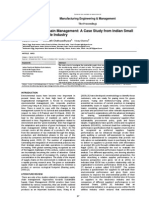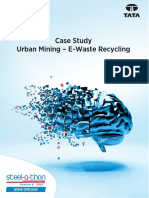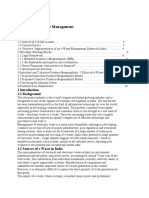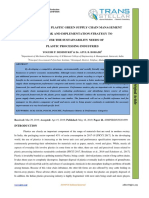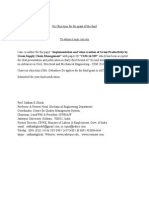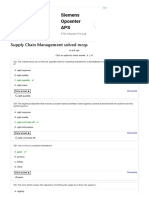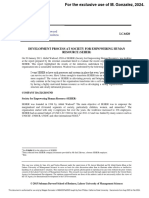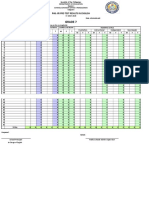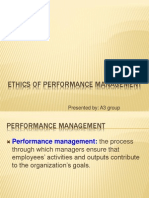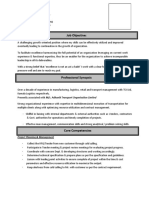Writing Examples
Here is a list of abstracts of the already published
1. E-Waste Supply Chain management: Findings from pilot studies in India,
China, Taiwan (ROC) and the UK
S. K. Ghosh,et.al., Debashree De
Excellent paper award-ICWMT Basel Convention,Tshinghua University,Beijing
Abstract:
The main purpose of this paper is to analyse the supply chain characteristics and, issues and
challenges of E-Waste management in developing and developed countries. This paper reviews
the status of e-waste supply chain, its sustainability and suggests improvement measures based
on literature survey and field studies for the chain in India, China and the UK. The result of the
paper will help in implementation of specific rules in the countries of concern. The constructs for
e-waste supply chain practices were identified using the literatures. Questionnaires were
formulated for studying existing practices in those three countries. It has been observed that there
are several aspects in supply chain constructs where each of the three countries has some positive
contribution over the others. Significant improvement in recent past in WEEE management system
has taken place in both the developing countries, whereas a matured system exists in the UK, the
developed one. This comparison may bring out some developmental scope in countries having
weaker WEEE management. WEEE recycling plants in India, China & ROC Taiwan and the UK
were selected for case studies. Data were collected by interviewing the representatives in the
corresponding organisation and thorough plant visits. Information collected were collated which
revealed the issues and challenges of E-waste management system. Improvement measures from
cross learning along with learning from prior researches has been suggested.
The sustainability of the e-waste business is not clear. The major issues pertaining in the supply
chain network of these three nations are, a) informal sector, b) trans-boundary shipment, c)
formal waste collection, d) waste segregation and e) loopholes of EPR. The challenges found are,
a) proper implementation of legislation, b) revision of rules, c) stop e-waste smuggling, d)
formalization of informal sector, e) choosing best available technology, f) boost of formal
recycling and g) introduction of ARF (Advance Recycling Fees). Addressing these issues and
challenges will make the business of e-scrap more sustainable. Prior research on E-Waste
emphasizes on technical issues covering technology, status quo, imports and rules. Additionally,
it has looked into management issues comprising of supply chain and modelling. However,
issues related to supply chain management have not been given appropriate attention. Moreover,
comparative analysis of approaches of E-Waste supply chain management in developed and
developing countries is scant. Therefore, this study bridges this gaps.
Key Words: E-Waste, supply chain, recycling, reuse, cost, service level, optimisation, transboundary.
�Implementation and value creation of green productivity by green supply chain
management
Debashree De, Sadhan K.Ghosh
Published in Seek Digital Library with ISBN number Published in CSM,2014,Birmingham,UK sent to ISI Thomson for further
rating.
Steel industry is the energy intensive sector directly affecting the growth of the nation. The effect
of the restriction put by the government in terms of environmental emissions as well as the costs
incurred due to change in environmental practices on the productivity is to be measured. The
Green Productivity Index (GPI) is a cumulative index for measurement of the environmental
effect and the economic performance. A system model is presented in this paper for analyzing
strategy decision making by AHP analysis. A suggestion has been made for implementing the
Green Supply chain process for deciding the priority in sequence of Green Manufacturing,
Reverse Logistics, Green Marketing, Investment Recovery and Green Purchasing. An attempt
has been made to analyze the amount of steel production, energy consumption and emissions in
an integrated environmental sustainable framework from primary research data. To benchmark
the productivity of a company considering the environmental effect, Green Productivity
Index(GPI) is being calculated for three companies, namely Company A-Steel Giant, Company
B-Customer of A, steel Processor and Company C -medium scale Steel industry. The analysis
shows there has been a significant increase in the GPI after implementation of Green Supply
Chain process in all the three companies. The trend of variation of GPI suggests that the Steel
giant has improved better than the medium scale steel industry and hence it is able to adopt the
Green Supply chain process better than mid scale industry. The steel processing industry B has
an enhanced GPI due to the green supply chain management and the influence of greenness
relationship between the supplier and customer.
Keywords Green Productivity Index (GPI), Green Supply Chain Management (GSCM),
Environmental Impact (EI)
Waste to energy in India and the UK - an
analysis through case studies.
Debashree De, Sadhan K. Ghosh,
E-waste supply chain issues and
challenges in India using QFD as
analytical tool
Sadhan K.Ghosh et.al.(Debashree
De)
Many more papers in review stage
abstract submitted
to USA, Philadelphia in Journal of
Waste management-accepted
Published in ACEEE jornal






